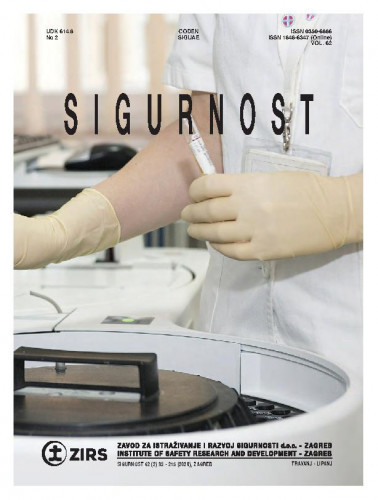Temeljno socijalno pravo radnika je pravo na radne uvjete koji neće štetiti sigurnosti, zdravlju i dostojanstvu radnika. U radu se analizira načelo zaštite radnika i zaštite prava na radu i u vezi s radom, uz prikaz pravne teorije i sudske prakse te se opisuju sudski postupci kod povrede prava radnika na zaštitu zdravlja i sigurne uvjete rada prema zakonima Republike Hrvatske i relevantnim propisima Europske unije. Posebice se analiziraju statistički podaci o predmetnim radnim sporovima te praksa Općinskoga suda u Splitu. Zaštita i ostvarenje ljudskih prava i sloboda složeno je i osjetljivo pitanje, a pravnu podlogu za učinkovitu zaštitu predstavlja međunarodnopravni, univerzalni i regionalni sustav zaštite ljudskih prava i sloboda. U radu se upozorava na potrebu analiziranja pravnih izvora Europske unije te prakse suda Europske unije pri donošenju sudskih odluka kako bi se postigao viši stupanj pravne sigurnosti i ujednačenosti odluka. Autorice zaključuju da se pravilnim i pravodobnim provođenjem propisanih mjera zaštite na radu sudionika radnoga procesa utječe na smanjenje povreda prava radnika te posljedično sudskih sporova zbog povrede prava radnika na zaštitu zdravlja i sigurne uvjete rada.; The fundamental social right of a worker is the right to the working conditions that will not jeopardise his/her safety, health and dignity. The paper analyses the principle of worker protection and protection of labour and occupational rights, in addition to the presentation of legal theory and court practice. The paper also describes the court proceedings arising from the violation of workers’ rights to occupational health and safety and safe working conditions according to the laws of the Republic of Croatia and the relevant EU regulations. In particular, the paper analyses the statistical data on specific labour disputes and the court practice of the Municipal Court in Split. The protection and exercise of human rights and freedoms is a complex and delicate issue, and the international law, universal and regional system of protection of human rights and freedoms represents a legal foundation for an efficient protection thereof. In this paper, we emphasised the need to analyse the EU sources of law and the case law of the EU Court of Justice in the process of delivering a judgement in order to achieve a higher level of legal security and uniformity of decisions. The authors concluded that a regular and timely implementation of prescribed measures concerning occupational health and safety of the participants in the work process decreases the violation of workers’ rights and, consequently, reduces the number of court disputes arising from the violation of workers’ rights to occupational health and safety and safe working conditions.
Sažetak

 Sigurnost : časopis za sigurnost u radnoj i životnoj okolini = Safety : journal for the safety in the work organisation and living environment : 62, 2(2020) / glavni urednik, editor in chief Željko Sven Bukovski.
Sigurnost : časopis za sigurnost u radnoj i životnoj okolini = Safety : journal for the safety in the work organisation and living environment : 62, 2(2020) / glavni urednik, editor in chief Željko Sven Bukovski.